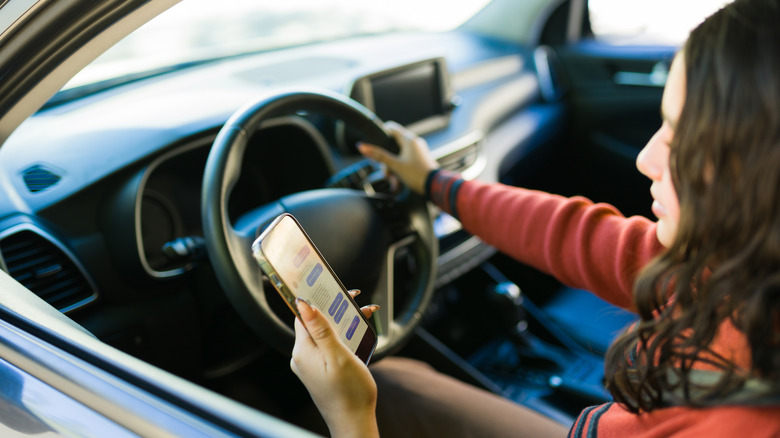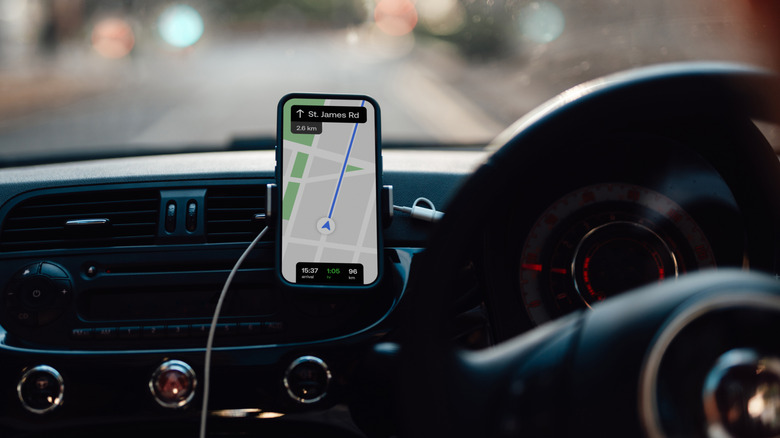Louisiana Is Cracking Down With The 'No Touch' Law - Here's What That Means
In 2023, more than 3,200 lives were lost as a direct result of accidents caused by distracted driving, per the NHTSA. Despite being a known cause of road accidents, most states in the U.S. still do not have strict rules designed to prevent such accidents, although attempts have been made in the past. The state of Louisiana is now taking a major step in order to curb this menace. In July 2025, Louisiana State Governor Jeff Landry signed a new bill that bans drivers from using mobile phones and other wireless communication devices while operating a motor vehicle.
The law, set to go into effect starting August 1, 2025, is also dubbed the "no touch" law because it effectively prevents drivers from even touching their smartphones while driving. Besides potentially helping to save the lives of countless people, the bill is also expected to lower auto insurance costs in the state, as it is part of a concerted effort to reduce insurance premiums in Louisiana.
Implementation of the Louisiana "No Touch" law will result in offenders being fined up to $100 for each offense they commit. The amount of the fine changes up to $250 depending on where the offense was committed, like for example, in a school zone or a highway construction area. The law was subject to intense scrutiny and concerns, as it would have given excessive power to police officers who might use the law to harass citizens by conducting searches or making arrests, even for alleged cell phone use violations. However, such provisions were removed from the law before implementation.
Notable exceptions to the new law: Emergency calls and hands-free systems still permitted
While Louisiana's new distracted driving law makes it illegal for drivers to hold or use a phone while their vehicle is moving, it does spell out a few common-sense exceptions. If you need to call 911 to report a crash, a medical emergency, a dangerous road hazard, a crime in progress, or if you believe someone's life is in immediate danger, you can legally pick up your phone while driving. The same applies to drivers working for ride-hailing companies or taxis who use a phone mounted in the car to communicate with their dispatcher.
Another important loophole is that the law only applies when the car is actually moving. If you are "lawfully stationary" — meaning pulled over, parked, or stopped in a safe spot off the flow of traffic — you can use your phone. Being stopped at a red light, however, doesn't count. Utility trucks and roadside assistance vehicles parked on the shoulder while their workers are doing their jobs are also covered by this exception. Finally, police officers, firefighters, and EMTs are permitted to use their devices while performing their duties, and everyone is still allowed to view directions on a hands-free GPS using devices like these.
Outside of these situations, holding a phone to talk, text, scroll social media, or even pick a song can get you fined. The goal is simple: Get people to stop fiddling with their phones when they should be focused on driving. While the distracted driving law will be implemented starting August 1, 2025, there is a grace period until January 2026, effectively meaning fines won't be handed out to offenders before January 2026.

